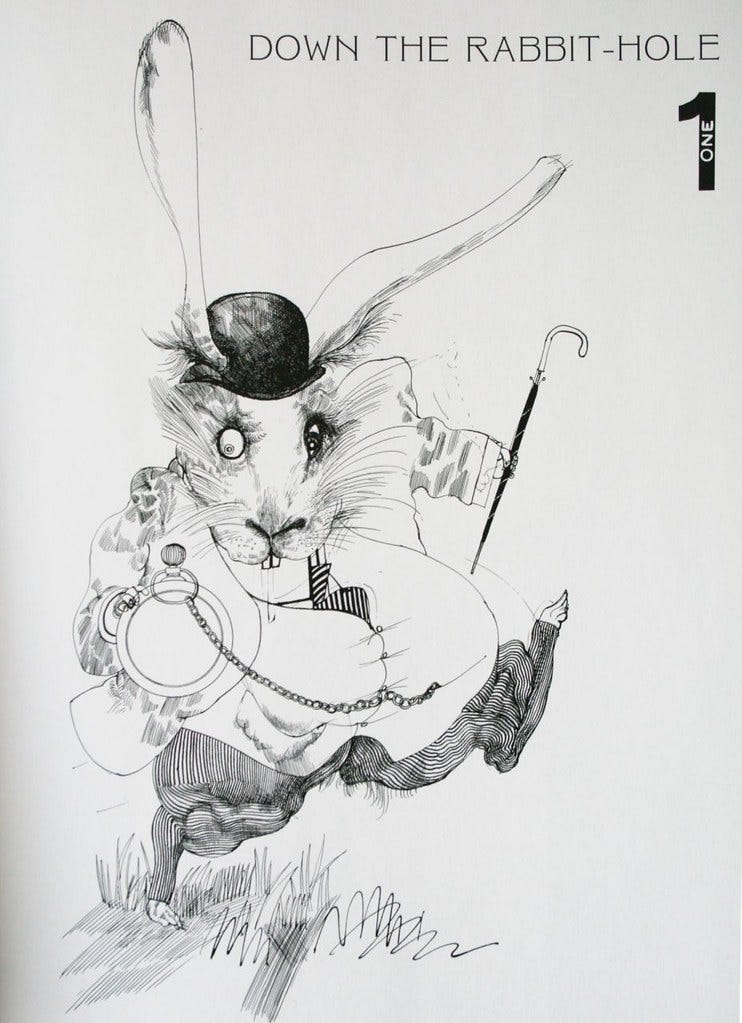Covid-19 is Still a Problem, or: How Diseases Actually Work
Can we prepare ourselves for the reality of our world?

Between the 1860s and 1950, Australia attempted to kill a fuck-ton of rabbits using plague.
Australia has fought some interesting wars.
Like the time that their army lost a war against 30,000 emus.
Anyway, the rabbit plague eventually worked — it killed almost all of the rabbits. But then, the rabbit population that survived appeared to be less effected. This appeared to support conclusions for “avirulency” an idea partially popularized by a pathologist named Theobald Smith who observed that cows, when bitten repeatedly by ticks, appeared to develop less-severe infections over time.

The myth goes like this: viruses that kill their hosts can’t reproduce. Therefore, viruses tend toward a pattern of contagion without death to better their chance for survival.
But there is a problem with this theory.
Viruses aren’t conscious, intelligent, decision-makers.
The “avirulence theory beguiles our desire to anthropomorphize the billions and billions of viruses on our planet” writes Johnathan Jarry in an article from McGill University (2021). “Viruses can become more or less virulent over time-based on a number of pressures that act upon them” (Jarry, 2021).
Okay, fine — but why the hell am I telling you all this?
Because of this passage in a June 2023 article from the well-respected peer-review journal Cureus:
“Extrapolation to the next putative Omicron subvariant suggested that the CFR should be in the vicinity of 0.04, which would make it more dangerous than the Alpha variant and 60% as lethal as the original Wuhan strain. Though we hope that this does not come to pass, caution is yet warranted at this time” (DeGrasse et al., 2023, p. 5).
Put plainly, there is a likely (though by no means certain) trend in the mutations of one of the most prevalent variants of Covid-19 that is trending toward a deadlier virus, not the reverse.
This tracks with how live samples of the disease are handled when being studied. Both the CDC and WHO “consider SARS-CoV-2 a biosafety level 3 pathogen — the same level as measles and tuberculosis” ([Covid Fact Sheet], 2023).

Part of the problem is our innate optimism bias. About 80% of the population, according to estimates from numerous studies, display an optimism bias (Sharot, 2011).
- We assume we will enjoy our vacations.
- We assume that we won’t get into car accidents.
- We assume that we won’t get sick from an invisible disease.
When it comes to something like a pandemic, our biases are going to be wildly important in swaying our reactions. That means that we need to be extra careful to try to correct our experience in the opposite direction of our bias!

We can return to Seneca for an example of what this looks like. He wrote, “counter one weakness with another, and temper your fear with hope. There is nothing so certain [than that the] things we dread sink into nothing and that things we hope for mock us … Accordingly, weigh carefully your hopes as well as your fears” (TheStoicLife.Org — XIII — On Groundless Fears, n.d., Para. 12–13).
But we also need to cultivate a mind of compassion, for ourselves and all other beings in the world. As the great Zen teacher Thích Nhất Hạnh wrote:
“Suffering is not enough. Life is both dreadful and wonderful… How can I smile when I am filled with so much sorrow? It is natural — you need to smile to your sorrow because you are more than your sorrow.”


Hi there! I’m Odin Halvorson, a librarian, independent scholar, film fanatic, fiction author, and tech enthusiast. If you like my work and want to support me, please consider subscribing!
References
- DeGrasse, D. C., Black, S. D., DeGrasse, D. C., & Black, S. D. (2023). The Rise of SARS-CoV-2 (COVID-19) Omicron Subvariant Pathogenicity. Cureus, 15(6). https://doi.org/10.7759/cureus.40148
- [Covid Fact Sheet]. (2023, February 21). [Open-Source Eschaton]. https://blog.open-source-eschaton.net/covid-fact-sheet
- Jarry, J. (n.d.). Do Bad Viruses Always Become Good Guys in the End? Office for Science and Society. Retrieved August 11, 2023, from https://www.mcgill.ca/oss/article/covid-19/do-bad-viruses-always-become-good-guys-end
- Sharot, T. (2011). The optimism bias. Current Biology, 21(23), R941–R945. https://doi.org/10.1016/j.cub.2011.10.030
- TheStoicLife.org — XIII — On Groundless Fears. (n.d.). Retrieved August 13, 2023, from https://sites.google.com/site/thestoiclife/the_teachers/seneca/letters/013
